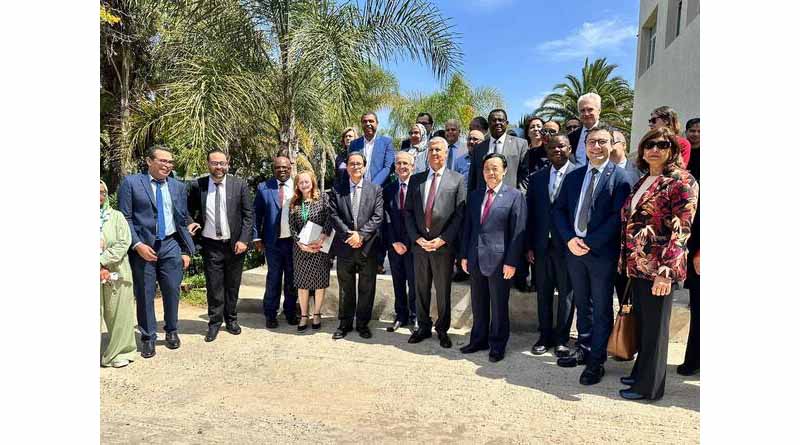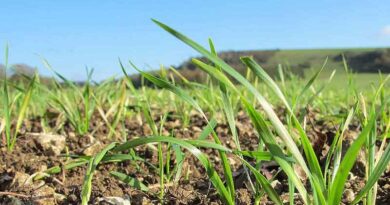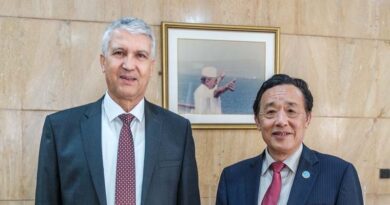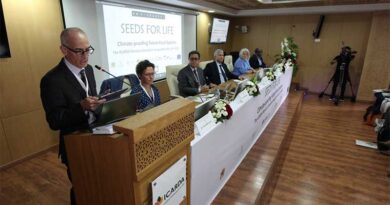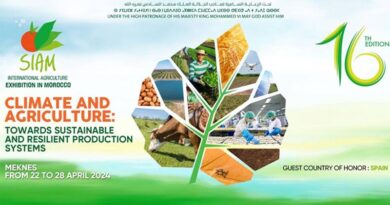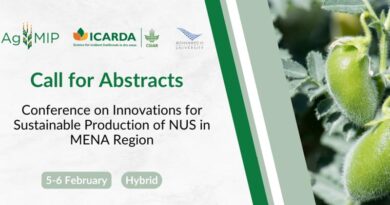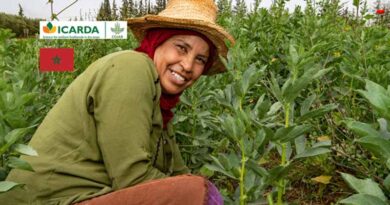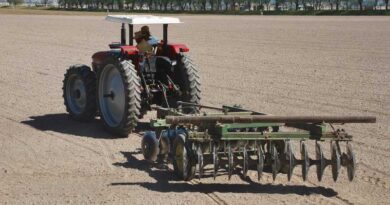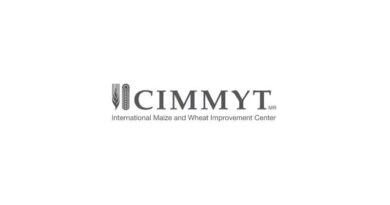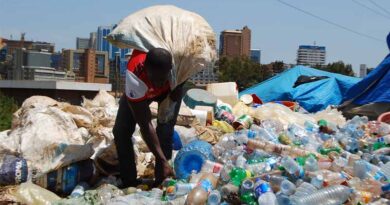Crop Diversity and Food Security – Highlights From Rabat
08 May 2024, Morocco: ICARDA was honored by the visit of H.E. Mohamed Sadiki, Minister of Agriculture in Morocco, Dr. Qu Dongyu, FAO Director General, Mr. Guillaume Grosso, Deputy Executive Managing Director, CGIAR, and Dr. Stefan Schmitz, Crop Trust Executive Director, and his esteemed guests from the Crop Trust to our office in Rabat and the INRA-Morocco/ICARDA Research Station in Marchouch.
The first stop was a visit to our genebank and labs in the Rabat Office. This was ahead of FAO’s 33rd Regional Conference for Africa in Rabat (AC33), an opportunity for African leaders and stakeholders to discuss their experiences in implementing the “4 betters”: production, nutrition, environment, and life – a reality for all. AC33’shigh-level consultations are crucial for shaping FAO’s Program of Work and Budget on the continent for the next biennium.
April 18th, alongside Mr. Aly Abousabaa, guests attended a field visit at the INRA-ICARDA Research Station in Marchouch, to see the latest of CGIAR’s globally and regionally mandated climate-smart crops and sustainable irrigation methods, despite the challenges posed by low rainfall.
“Despite only 171 mm rainfall in Marchouch this season, our crops showed the resilience vital for Moroccan farmers to adapt to climate change impacts,” said Dr. Michael Baum, Deputy Director General for Research, ICARDA.
On April 19th, ICARDA hosted Crop Diversity Day Rabat 2024 in collaboration with the Crop Trust, FAO, and the International Treaty on Plant Genetic Resources. The day consisted of workshops and visits that attracted crop breeding experts from academia, research, government, donors, and international organizations.
It focused on successful initiatives in crop diversity conservation and usage in the Middle East and North Africa, addressing pressing food security challenges and advocating for increased investment in genebanks and research through the Crop Trust Endowment Fund.
“Plant genetic resources are vital for humanity, ecosystems, and social well-being. Optimizing biodiversity via global genebanks is crucial amid global climate challenges and it is imperative to delve deeper into the genetic diversity preserved in genebanks worldwide. Collaboration and innovative funding approaches are needed more than ever,” said Mr. Aly Abousabaa in his opening remarks.
In his keynote presentation, Professor Nils Stein from the Leibniz Institute of Plant Genetics and Crop Plant Research highlighted the need for increased funding to bridge the gap between genomics and breeding, underscoring the transformative potential of genebanks into dynamic research centers.
“Genebanks often receive funding for storage, but there’s a vital need for more research bridging genomics and breeding. They require increased funding to evolve into expert and dynamic research hubs,” he said.
The workshop featured insightful panel discussions. During the morning session, the experts highlighted the global interdependence in developing new crops and the important role of crop diversity and genebanks for climate resilience and food security.
In the afternoon session, scientists collaborated on envisioning the future trajectory of crop diversity. They delved into strategies aimed at aligning the utilization and conservation of plant genetic resources, with a particular emphasis on strengthening genebanks on a global scale.

The participants were then treated to a tour of ICARDA’s genebank, speed-breeding, and plant health facilities, providing a tangible connection to conservation efforts.
The recent high-level visits and celebration of Crop Diversity Day served as reminders of the importance not only of the pioneering agricultural research conducted at the ICARDA Morocco Research Platform but also of the vital collaboration required to foster and disseminate such globally significant science.
The research achievements of ICARDA are the product of a joint effort, drawing upon the collective expertise, resources, and facilities of esteemed partners like the Kingdom of Morocco, INRA Morocco, the Crop Trust, FAO, and others. Each stakeholder contributes unique insights, resources, and expertise, targeted to the diverse needs of dryland rural farmers and agricultural economies. It is through this unified collaboration that sustainable food, land, and water systems can be developed and implemented, to tackle the escalating challenges posed by climate change.
Also Read: BASF Launches New Insecticide Efficon With Axalion Active Introduced Under IRAC Group 36
(For Latest Agriculture News & Updates, follow Krishak Jagat on Google News)

